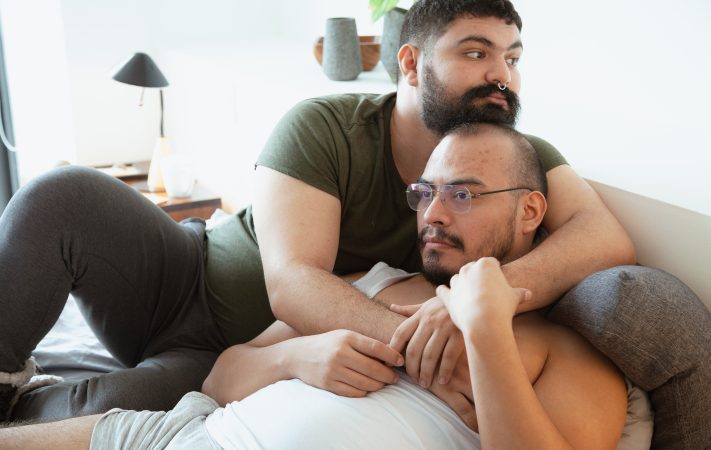Sexual rejection is normal and it’s going to happen.
Sex is a vulnerable topic and can be hard to talk about even on the best of days in your relationship. There is often insecurity, a desire to please and to be pleased.
Being turned down for sex is bound to happen, more than once. Here are some things to keep in mind when it does.
- Plan for it: Sometimes just knowing that your partner is going to tell you that they are not interested in having sex can help. You and your partner are going to experience arousal and desire for sex at different times. It’s a normal part of a relationship and there will be times when they decline sex. That being said, it can feel hurtful when a partner turns you down but one thing to keep in mind is that it is healthy and important that both you and your partner have space to express your sexual needs even if those needs are a “No” to a sexual experience.
- Depersonalize it: When in a healthy relationship it is possible to keep from taking your partner’s “No” as a personal rejection. It can help to keep in mind that other humans are getting told no about sex in their relationships and that is normal. You and your partner are different humans and your sexual wants are going to ebb and flow. Even the most attractive, famous person you can think of has been turned down and will be turned down again. I know you may not think so but it’s true.
- Communicate about it: Talk to your partner about how you can say “No” in a way that decreases hurt. You both know you are going to decline sex at some point and talking about it before can make a big difference. More often than not being turned down can lead to thoughts like, “I’m not attractive enough.” “Is something wrong with me?” or defensive responses like “Well I know, so and so would love to sleep with me.” These responses come from a place of insecurity. Being able to talk about being turned down will not take away all the hurt but it can help.
Here are some examples for communicating about sexual rejection:
- “You are attractive to me. Right now I need sleep.”
- “I don’t want to have sex.”
- “I know you want sex right now. Here is what would get me in the mood, can we try that?”
- “When I tell you I don’t want to have sex it doesn’t mean I don’t desire you, it means that I have other needs right now.”
- “I have other things on my mind right now, this is the kind of sex I can offer if you’re interested.”
- “I know you want me to be available for sex right now. I know that having sex is important. Can we set the mood on this date when I know I’ll have the headspace for it.”
- “I’m satisfied right now.”
- “I’m nervous you’ll get mad if I don’t have sex with you but I don’t want to have sex just to keep the peace.”
Talking about sex is a hot topic for many relationships. It’s okay to struggle through addressing sex and the various challenges and delights this subject brings. If you and your partner struggle with sexual rejection in your relationship you are not alone. I hope that this post provided some positive ways for you to think about and to discuss this topic when you encounter it.
I look forward to hearing from you as you take your own powerful and transformative journey. Per usual take what fits for you, leave what does not, and join me next time. Until then let’s stay social
















